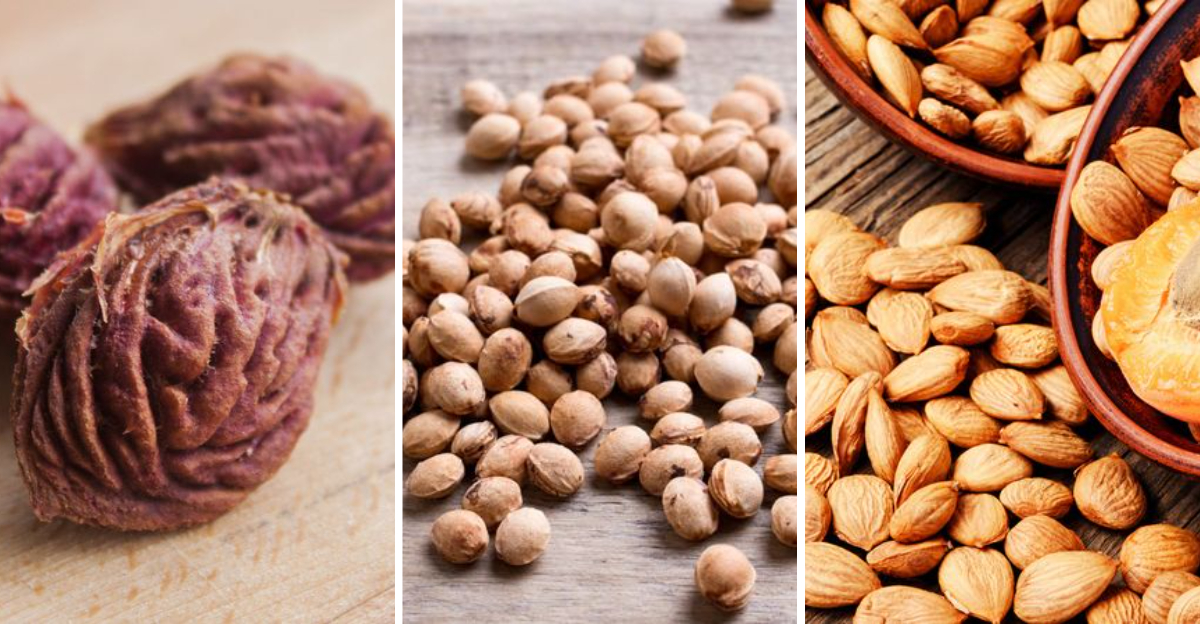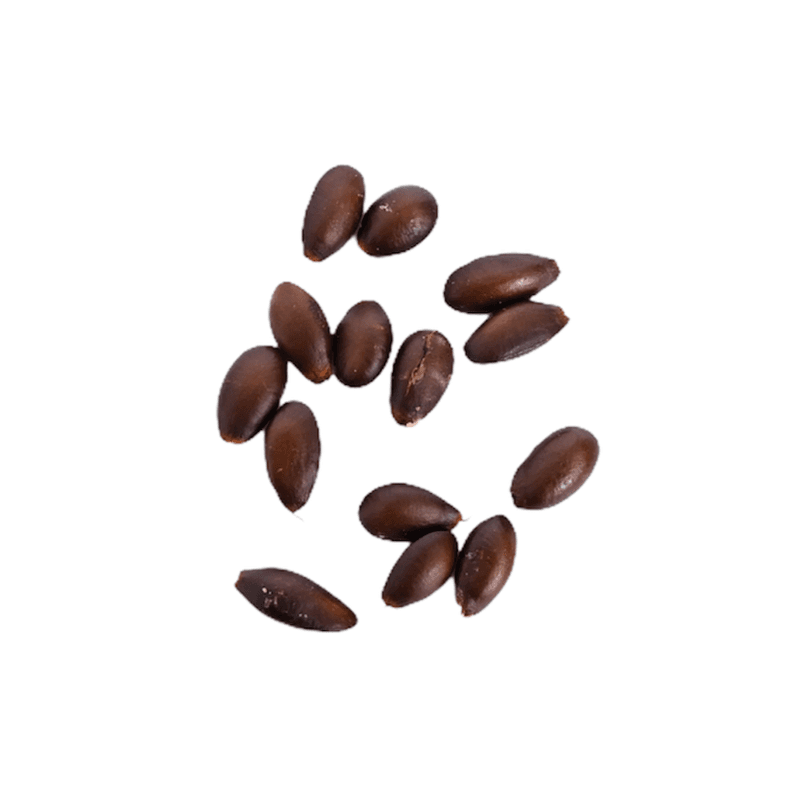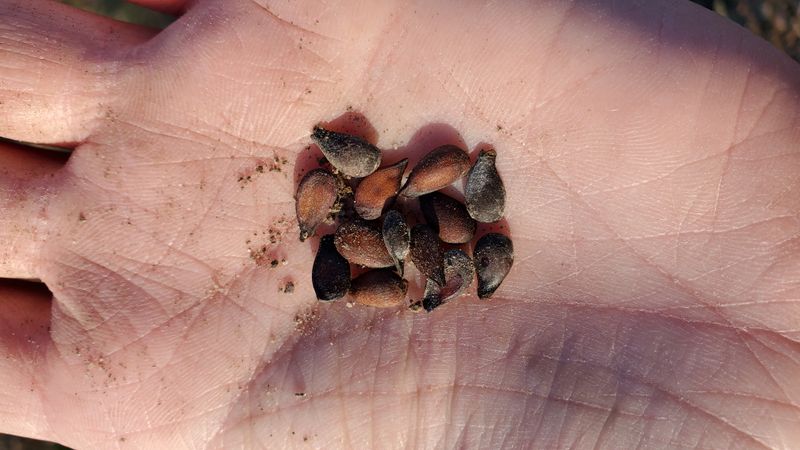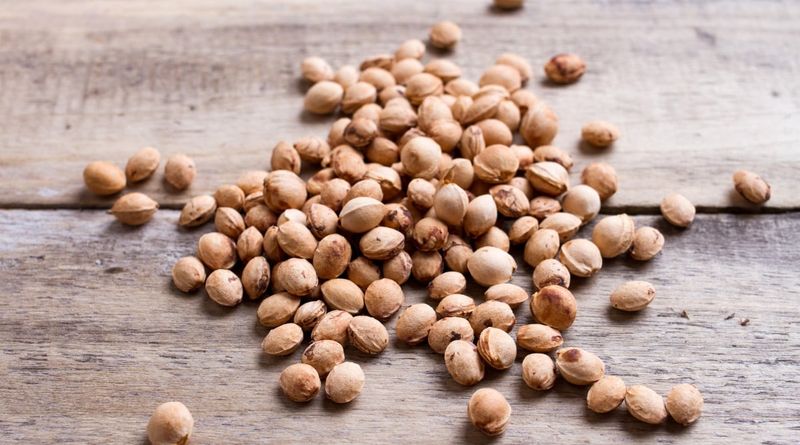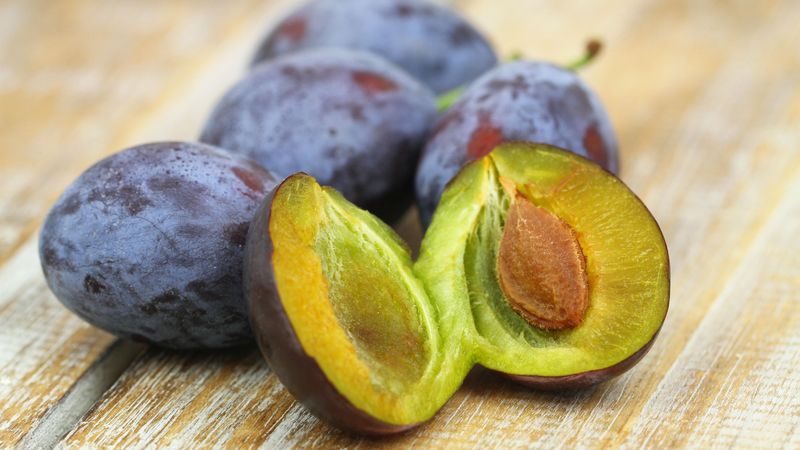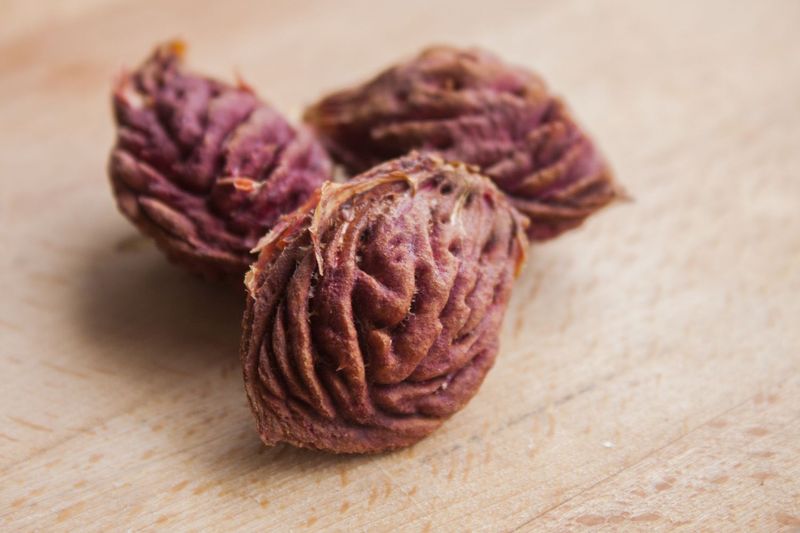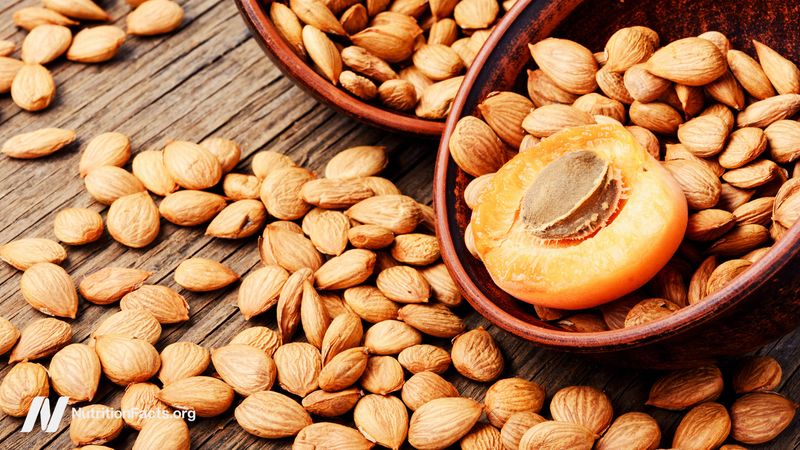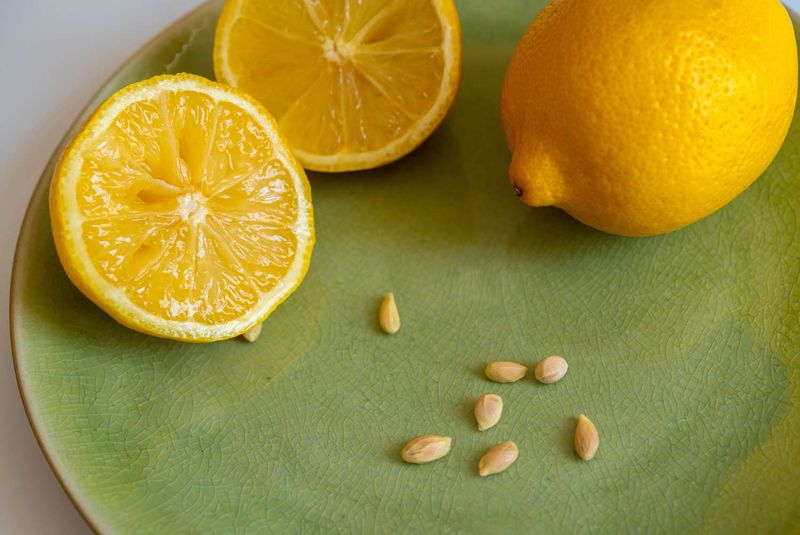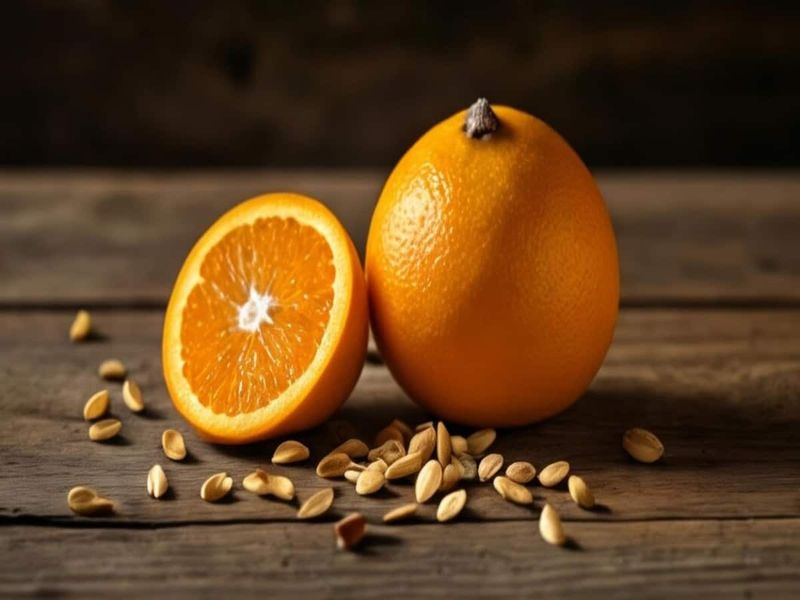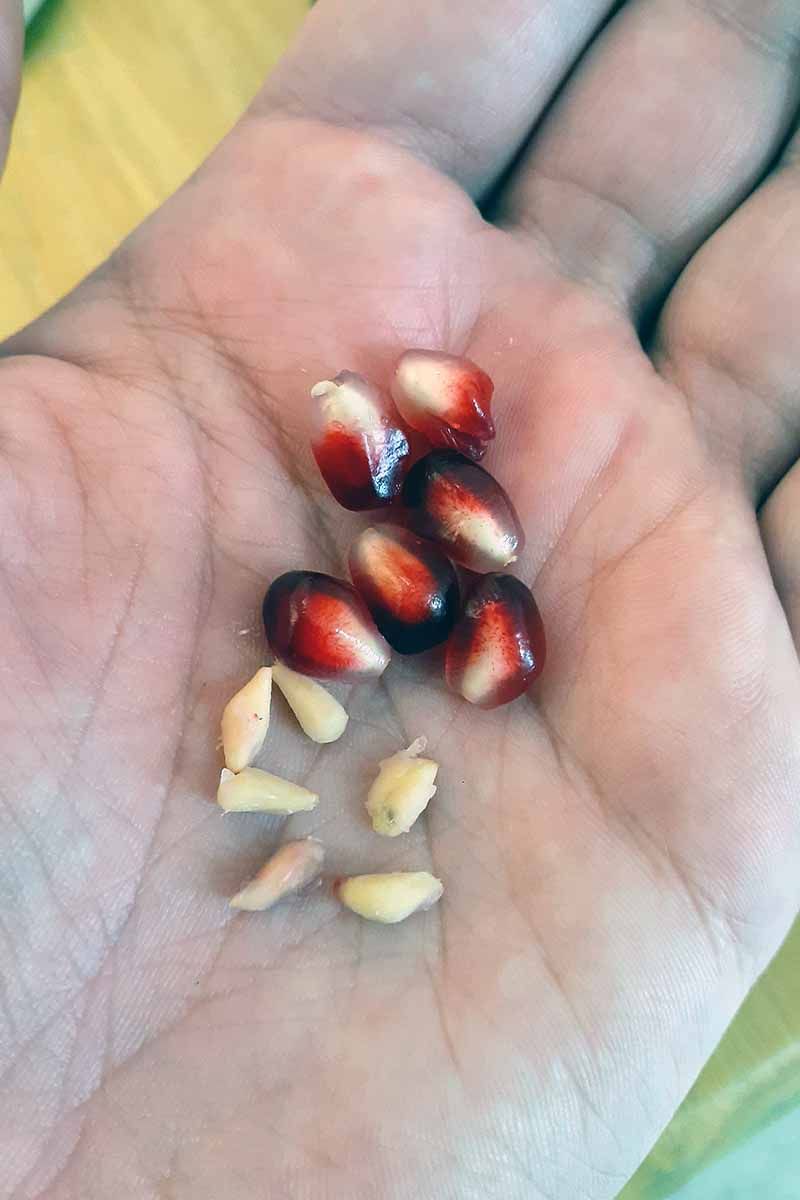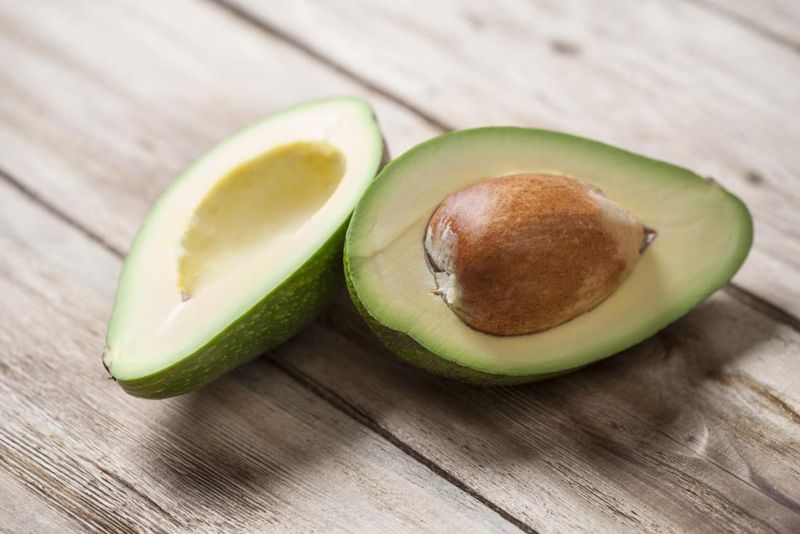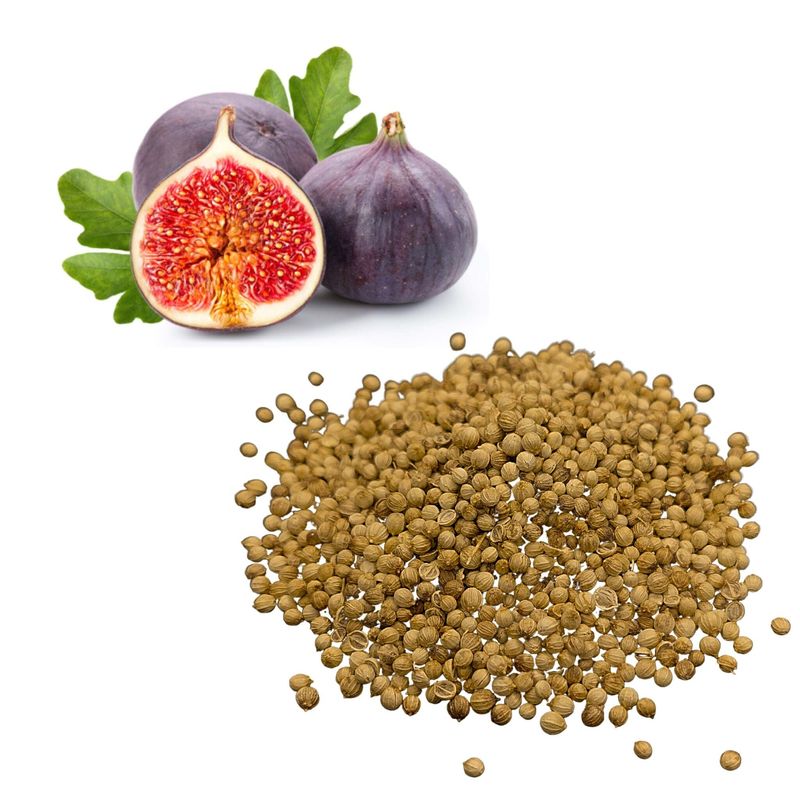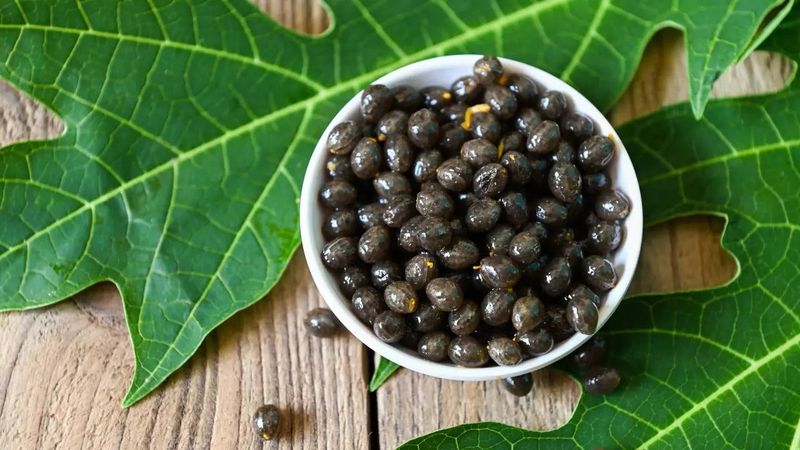Growing your own fruit tree from saved seeds is a rewarding experience that connects you with nature and provides fresh produce right at your doorstep.
While not all fruit seeds will grow true to their parent plant, those that do can become a delightful addition to your home garden. Here, we explore twelve types of fruit seeds worth saving and planting.
These seeds not only promise to yield beautiful trees but also offer a chance to learn about germination, growth, and the joys of nurturing a plant from scratch.
1. Apple Seeds
Apple seeds are a popular choice for those looking to grow a fruit tree from scratch. They are easily accessible, but you should note that apple trees grown from seeds often produce fruit different from the parent fruit.
Start by selecting seeds from a high-quality apple. After cleaning and drying them, store the seeds in a cool, dark place before planting.
Germination requires patience, as it can take several weeks. However, the process is rewarding, offering insights into the life cycle of a tree.
2. Pear Seeds
Pear seeds can be a delightful addition to your garden, though they require some care in preparation. Start with a ripe pear, extracting the seeds carefully. Clean them of any pulp residue.
The seeds need stratification, a cold treatment that mimics winter conditions, to break dormancy. Once stratified, plant the seeds in a pot. Pear trees grown from seeds might take a few years to bear fruit, but they can offer a unique, home-grown experience.
3. Cherry Seeds
Cherry seeds, or pits, require special attention when planting. First, clean the pits thoroughly and let them dry. Cherry seeds need cold stratification; store them in the fridge for a few months.
Once the stratification period is over, plant the seeds in well-drained soil. Cherry trees may take several years to produce fruit, but the beautiful blossoms are worth the wait. This process requires patience but rewards with a stunning tree.
4. Plum Seeds
Plum seeds are a great choice for an aspiring gardener. Begin by cleaning and drying the pits from a juicy plum. Stratification is essential, requiring a few months in the refrigerator.
Plant the seeds in loose, well-drained soil. Plum trees thrive in sunny spots, so choose your location wisely. While fruit production may take time, the journey from pit to tree is an educational and satisfying experience.
5. Peach Seeds
Peach seeds are straightforward to plant but need proper preparation. After extracting the pit from a ripe peach, clean it thoroughly. Cold stratification is crucial, simulating winter conditions in your fridge.
Once ready, plant the seeds in a sunny spot with well-drained soil. Peach trees can take a few years to bear fruit, but the vibrant blossoms in spring will be a delightful sight in your garden.
6. Apricot Seeds
Apricot seeds are ideal for those who enjoy a challenge. Begin by cleaning and drying the pits, then stratify them in the fridge for several weeks. Once stratified, plant the seeds in nutrient-rich soil.
Apricot trees prefer warmer climates, so space them accordingly. The journey from seed to tree can take a few years, but it’s a rewarding process that brings beautiful blossoms and delicious fruit.
7. Lemon Seeds
Lemon seeds offer an exciting opportunity to grow citrus indoors. Begin with seeds from a juicy lemon, cleaning and drying them. Unlike many other seeds, lemon seeds don’t require stratification.
Plant them in well-draining soil, placing the pot in a sunny window. Regular watering is essential but avoid overwatering. Lemon trees can take several years to produce fruit, but their fragrant blossoms and lush foliage make them a delightful indoor companion.
8. Orange Seeds
Orange seeds can be a fun project for citrus lovers. Start by selecting seeds from a fresh orange, cleaning them thoroughly. Orange seeds don’t need stratification, making them easier to germinate.
Plant the seeds in a pot with well-drained soil, placing them in a sunny location. Water consistently but avoid waterlogging.
Orange trees grown from seeds may take years to fruit, but their glossy leaves and fragrant flowers make them a charming addition to any space.
9. Pomegranate Seeds
Pomegranate seeds are a treat to plant, offering a glimpse into tropical gardening. Begin by extracting seeds from a ripe pomegranate, cleaning them of any pulp. Unlike some fruits, pomegranate seeds don’t need stratification.
Plant them directly in well-draining soil, ensuring plenty of sunlight. The trees can take a few years to bear fruit, but the beautiful red blossoms and unique foliage make them a stunning choice for gardeners.
10. Avocado Seeds
Avocado seeds are a wonderful introduction to seed planting. Begin by removing and cleaning the pit from a ripe avocado. Suspend the pit over a glass of water using toothpicks.
Place it in a sunny spot and change the water regularly. Roots and shoots will appear within weeks. Once substantial, plant the seedling in rich soil. While it can take several years to bear avocados, the plant’s growth offers continuous fascination.
11. Fig Seeds
Fig seeds offer a unique gardening experience. Extract seeds from a ripe fig, cleaning them thoroughly. They don’t require stratification but need a warm environment to germinate.
Plant them in well-drained soil, keeping the area humid for the best results. Figs grown from seeds can take several years to fruit, but their ornamental value and lush foliage make them an excellent choice for a home garden.
12. Papaya Seeds
Papaya seeds are perfect for those in warmer climates. Start with a ripe papaya, extracting and cleaning the seeds. They don’t need stratification, which simplifies the process.
Plant them in nutrient-rich soil with plenty of sunlight. Regular watering is key, but ensure the soil is well-drained. Papaya trees can fruit within a year, making them one of the faster options for eager gardeners.
